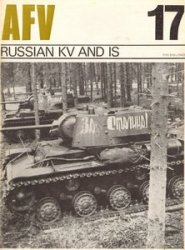The unification of the three Western zones into the Federal
Republic of Germany (West Germany) became a reality
in 1949. Konrad Adenauer (1876 –1967), the leader
of the Christian Democratic Union (CDU), served as
chancellor from 1949 to 1963 and became the “founding
hero” of the FRG. Adenauer, who had opposed Hitler and
his tyrannical regime, sought respect for Germany by cooperating
with the United States and the other Western
European nations. He was especially desirous of reconciliation
with France—Germany’s longtime rival. The beginning
of the Korean War in June 1950 had unexpected
repercussions for West Germany. The fear that South Korea
might fall to the Communists led many in the West to
worry about the security of West Germany and inspired
calls for German rearmament. Although some people,
concerned about a revival of German militarism, condemned
this proposal, Cold War tensions were decisive.
West Germany rearmed in 1955 and became a member
of NATO.
The Adenauer era witnessed the resurrection of the
West German economy, often referred to as the “economic
miracle.” Although West Germany had only
75 percent of the population and 52 percent of the territory
of prewar Germany, by 1955 the West German GNP
exceeded that of prewar Germany. Real wages doubled
between 1950 and 1965, even though work hours were
cut by 20 percent. Unemployment fell from 8 percent in
1950 to 0.4 percent in 1965. To maintain its economic
expansion, West Germany imported hundreds of thousands
of “guest” workers, primarily from Italy, Spain,
Greece, Turkey, and Yugoslavia.
The capital of the Federal Republic had been placed at
Bonn, a sleepy market town on the Rhine River, to erase
memories of the Nazi era, when the capital was at Berlin.
Still, the country was troubled by its past. The surviving
major Nazi leaders had been tried and condemned as war
criminals at the Nuremberg war crimes trials in 1945
and 1946. As part of the denazification of Germany, the
victorious Allies continued to try lesser officials for war
crimes, but these trials diminished in number as the Cold
War produced a shift in attitudes. By 1950, German
courts had begun to take over the war crimes trials, and
the German legal machine persisted in prosecuting cases.
Beginning in 1953, the West German government also
began to make payments to Israel and to Holocaust survivors
and their relatives to make some restitution for, in
the words of German president Richard von Weizsäcker,
“the unspeakable sorrow that occurred in the name of
Germany.”
After the Adenauer era ended in the mid-1960s, the
Social Democrats became the leading party. By forming a
ruling coalition with the small Free Democratic Party, the
Social Democrats remained in power until 1982. The first
Social Democratic chancellor was Willy Brandt (1913–
1992). Brandt was especially successful with his “opening
toward the east” (known as Ostpolitik), for which he received
the Nobel Peace Prize in 1972. On March 19,
1971, Brandt met with Walter Ulbricht, the leader of East
Germany, and worked out the details of a treaty that was
signed in 1972. This agreement did not establish full
diplomatic relations with East Germany but did call for
“good neighborly” relations. As a result, it led to greater
cultural, personal, and economic contacts between West
and East Germany. Despite this success, the discovery of
an East German spy among Brandt’s advisers caused his
resignation in 1974.
His successor, Helmut Schmidt (b. 1918), was more of
a technocrat than a reform-minded socialist and concentrated
on the economic problems brought about largely
by high oil prices between 1973 and 1975. Schmidt was
successful in eliminating a deficit of 10 billion marks in
three years. In 1982, when the coalition of Schmidt’s Social
Democrats with the Free Democrats fell apart over
the reduction of social welfare expenditures, the Free
Democrats joined with the Christian Democratic Union
of Helmut Kohl (b. 1930) to form a new government.
|
|
||||||||
|
Www.WorldHistory.Biz
Sundries
 Contact Contact
|
 
10-08-2015, 22:17
WEST GERMANY: THE ECONOMIC MIRACLE
  |
|||||||
 |
 |
 |
 |
|||||
|
||||||||

 World History
World History





